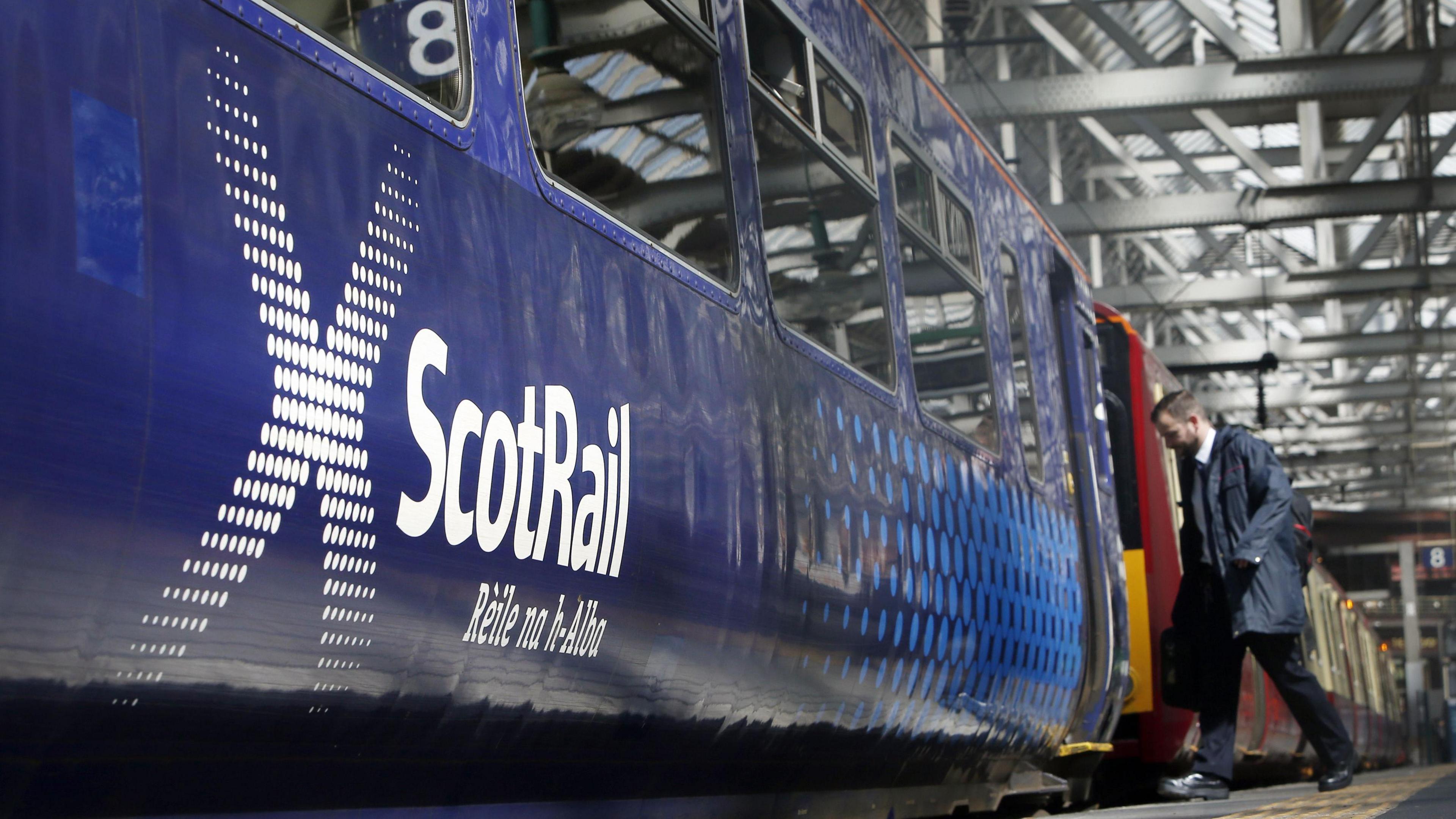Peak fares return to train services in Scotland
Commuters react to peak fares returning to train services in Scotland
- Published
Peak time rail fares have returned to train services in Scotland after the end of a pilot scheme that scrapped higher prices.
An anytime return ticket between Glasgow and Edinburgh now costs £31.40 instead of £16.20. It affects tickets bought before 09:15 on weekdays and certain services between 16:42 and 18:30.
The Scottish government had carried out the pilot scheme to encourage people to use the railway rather than their cars.
However, it said that due to the costs it could not justify continuing as passenger levels had not increased to the levels hoped for.
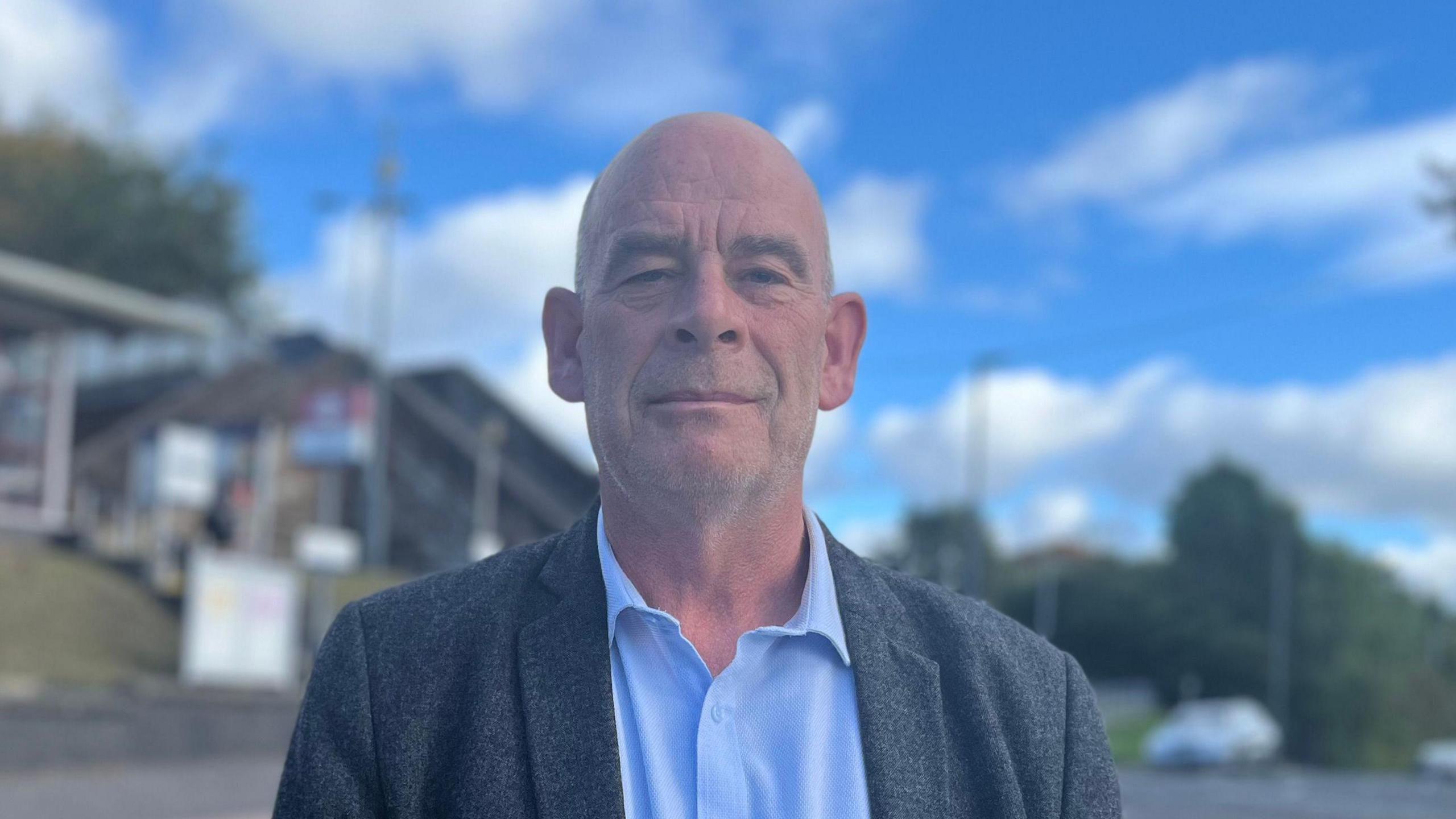
Robert Samson
Robert Samson, of the passenger watchdog Transport Focus, said that a number of initiatives on season tickets could help with the cost train passengers face.
He told BBC Scotland News: "Passengers will obviously be disappointed, but there are products in place that will hopefully mitigate that.
"It will hit passengers hard in the pocket but passengers who travel regularly will hopefully be able to take advantage of season tickets, or flexible season tickets."
Mr Samson said that if Scotrail was able to "focus on their core product" then passenger numbers could increase due to an improved service.
The rail operator has had a reduced timetable in place since the summer as a result of a dispute with unions regarding pay - an issue that ended last week when drivers accepted a new deal.
Mr Samson said: "Scotrail can [now] focus on the main issues that drive passenger satisfaction - delivering a punctual railway, one with improved frequency of service and one where you’re able to get a seat on the train.
"If they deliver that with a full timetable then passenger numbers should hopefully grow.
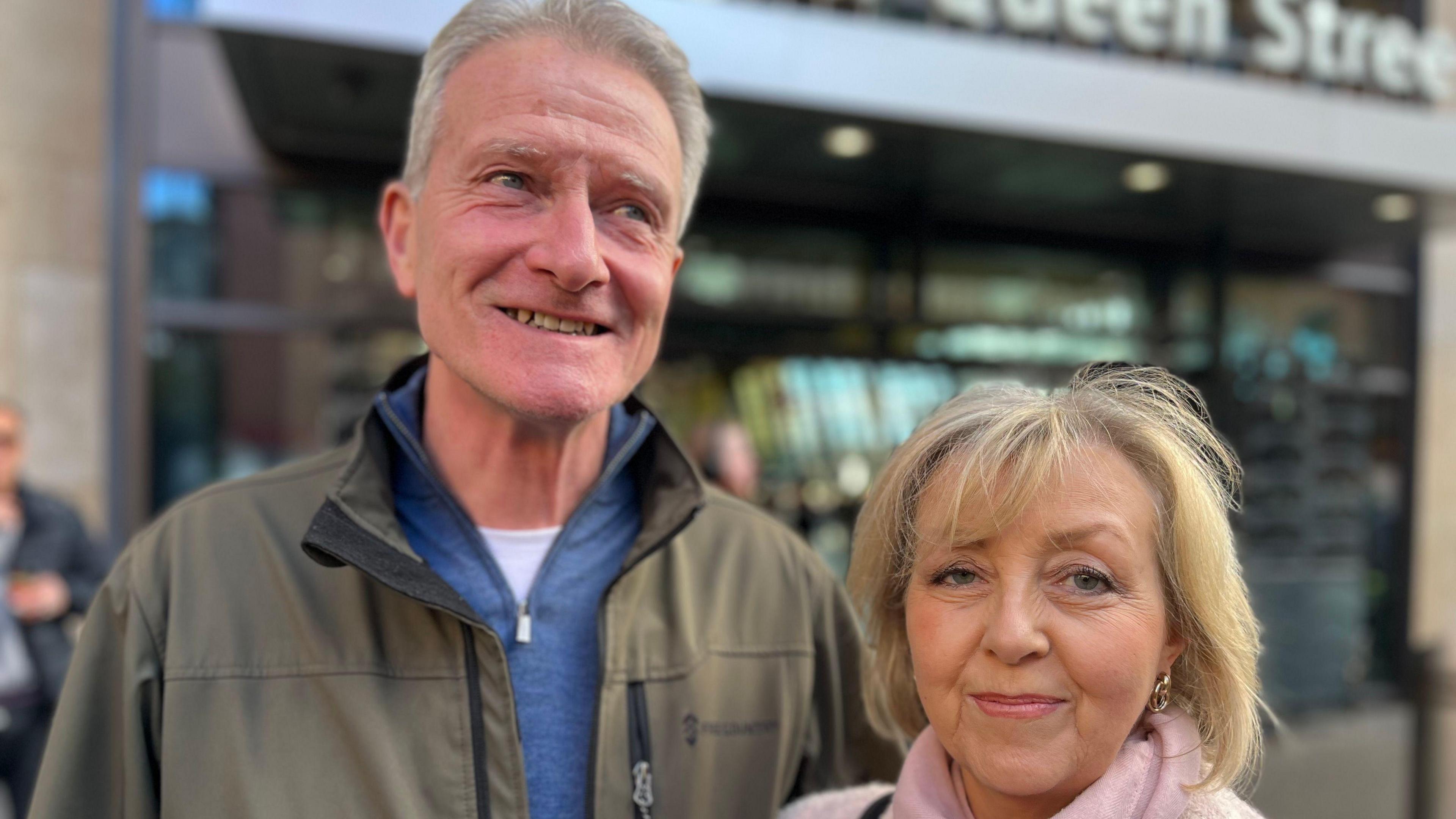
Kevin and Lorraine Gallagher
The Aslef union called the decision "a tax on workers" and said the government should "think again" regarding the move.
The union's Scottish organiser Kevin Lindsay said people would be "forced back into their cars" by the "short-sighted" decision.
A 12-month discount on ScotRail season tickets and new “flexipasses” - allowing commuters to book 12 single journeys for the price of 10 - are among the packages being offered by Scotrail to coincide with the fare changes.
Passengers at Glasgow Queen Street had mixed views on the move.
Kevin and Lorraine Gallagher told BBC Scotland News they'd "quite enjoyed" being able to travel earlier in the day if they wanted, but that they understood the reasons behind not continuing the scheme.
Mrs Gallagher said: "Maybe the rail network need the money - I don't mind paying [extra].
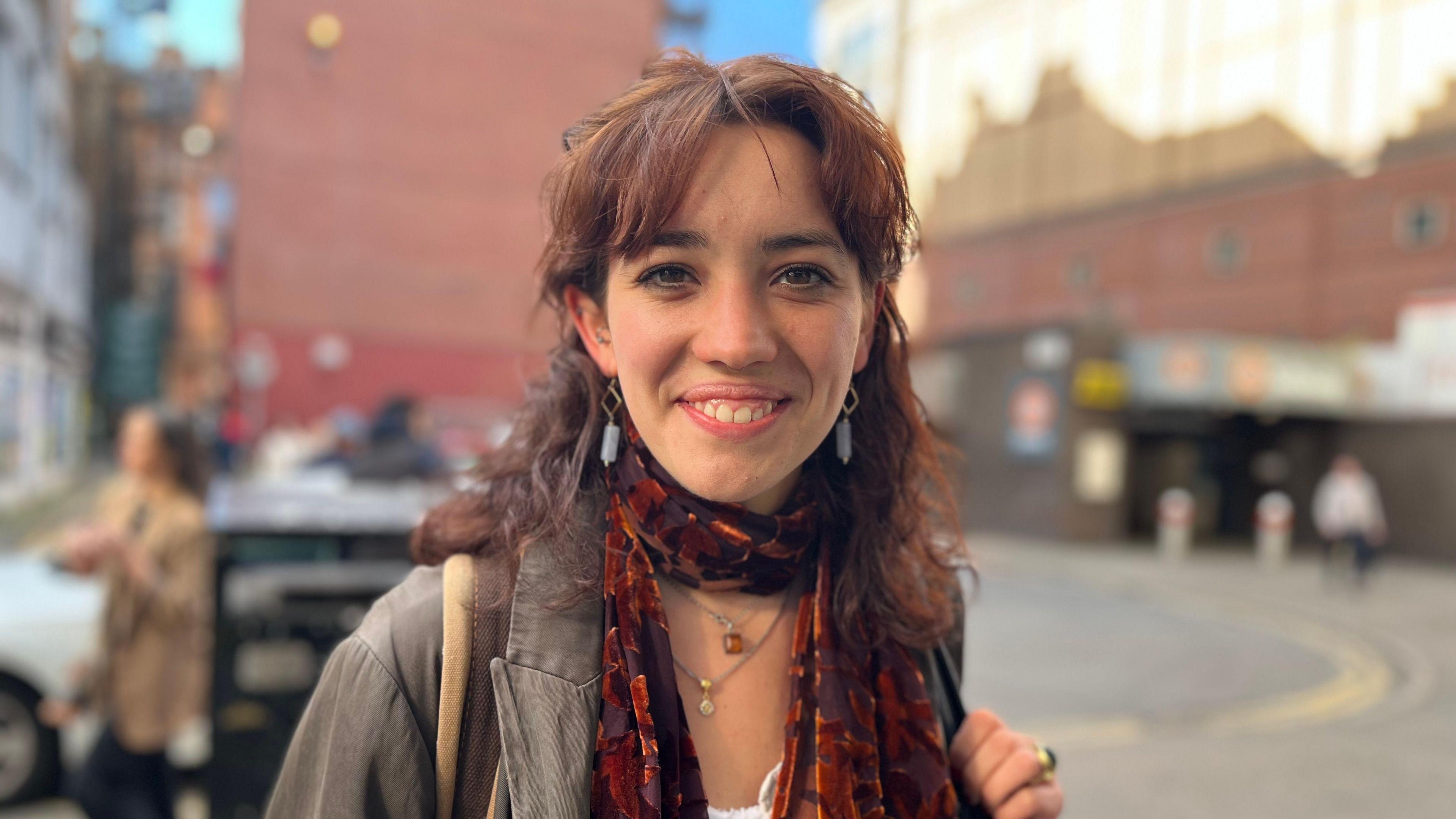
Katie Moody
Katie Moody said that she was a fairly regular train traveller between Glasgow and Edinburgh, and that she would be trying to avoid peak-time travel now that fares had increased again.
Other passengers expressed concern about the effect the prices could have on people during the cost of living crisis and in the run-up to Christmas.
Opposition parties and campaign groups have urged the Scottish government to think again regarding the scheme.
Scottish Labour's net zero spokeswoman Sarah Boyack said the decision was "senseless".
She added: “This scheme has been sabotaged by SNP incompetence at every turn... Now thousands of Scots are at risk of once again being priced out of their daily commute, forced back into cars and stuck in traffic jams."
The Scottish Greens, who introduced the initiative while part of the government, said peak fares were "fundamentally unfair."
Transport spokesman Mark Ruskell said: "They disproportionately impact people who have no say over when they need to travel for work or study.
"Bringing them back will do nothing to help workers or students or to encourage people out of their cars.
“Many regular commuters have saved hundreds of pounds on their fares over the last year, and some of the rises they will now face are staggering."
The Scottish Liberal Democrats the SNP were "completely out of touch" with the public regarding transport, while the Scottish Conservatives previously said a permanent end to peak rail fares would "ease the burden on hard working Scots".
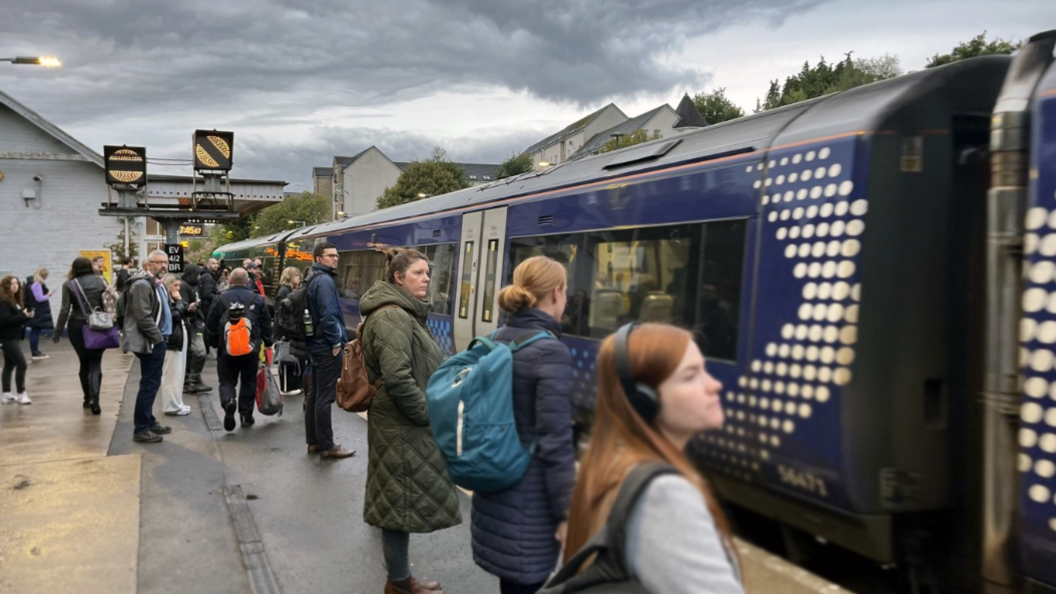
The Aslef union called the reversal a "tax" on people who have to get to work
However, the Scottish government previously stated the pilot had only found “limited success”.
Transport Secretary Fiona Hyslop said while there had been an increase in passenger levels of about 6.8% during the pilot, it would have required a 10% jump in order for the policy to become self-financing.
Transport Scotland said the initiative could return, depending on budget allocations in the future.
A spokeswoman said: "The Scottish government would be open to consider future subsidy to remove peak fares should UK budget allocations improve in future years."
Around £40m has been spent on the scheme, which started in October last year.
Related topics
- Published27 September 2024
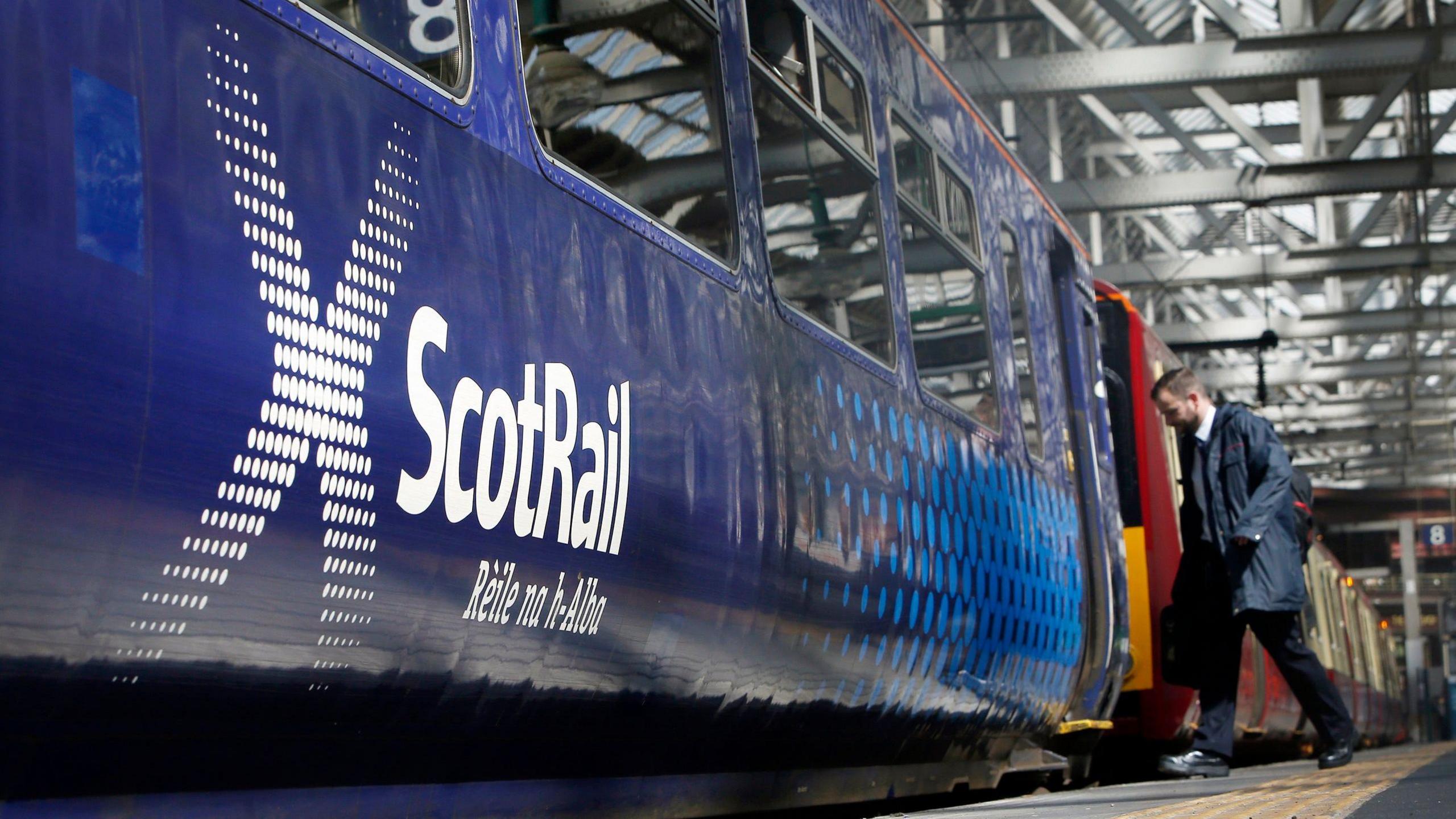
- Published25 September 2024
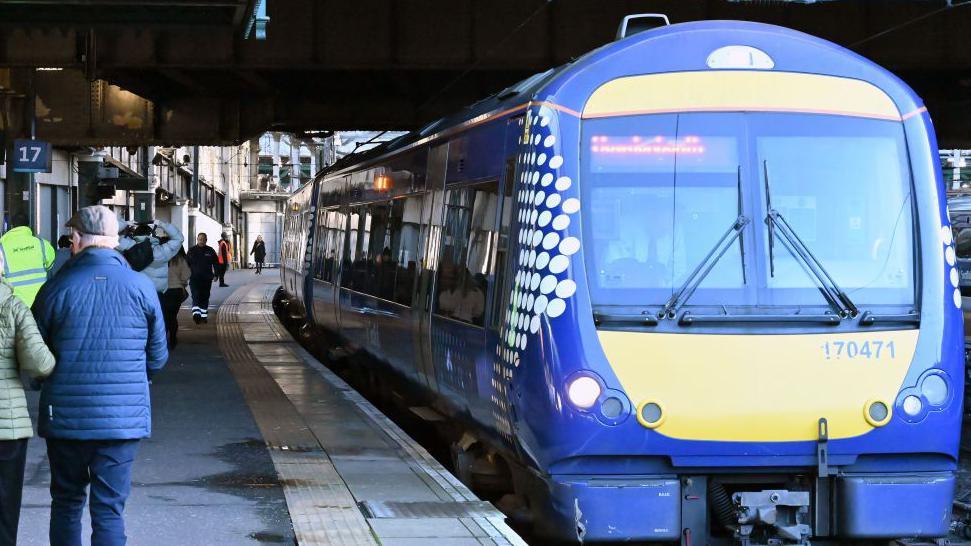
- Published20 August 2024
